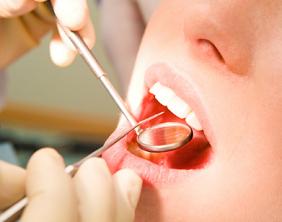Did you know that your genes frequently influence the condition of your mouth? It is real! If you carry particular genes, you may be more likely to have tooth decay, gum disease, and other oral health issues. What you need to know is as follows.

Genetics plays a role in many aspects of our health, including oral health. Studies have shown that certain genetic conditions can increase the risk of tooth decay and gum disease. For example, people with celiac disease are more likely to develop enamel damage on their teeth. Other genetic factors, such as the size and shape of teeth, can also affect oral health. In addition, some genetic conditions, such as cleft palate or Down syndrome, can cause oral health problems. However, it is essential to remember that genetics is just one factor that can affect oral health. Other factors, such as diet and oral hygiene, also play a role. Therefore, even if you have a family history of dental problems, you can still take steps to protect your teeth and gums.
Even if you have a history of dental issues in your family, there are a number of things you can take to safeguard your oral health. Start by brushing and flossing your teeth every day. Your gums and teeth will be free of plaque, thanks to it. Plaque is a sort of bacterial sticky film that can lead to tooth decay and gum disease. Moreover, remember to go to the dentist for cleanings and checkups on a regular basis. It will aid in early problem detection and stop problems from getting worse. Finally, maintain a healthy diet and stay away from sugary beverages. Your teeth and gums will stay healthy if you eat a balanced diet.
You must take action to safeguard your oral health if you have a family history of dental issues. Speak with our team of dental professionals; they can assist you in developing a personalized oral care plan. Call us now!
About Us • Tustin, CA • Zenith Smiles
Above all else, we here at Zenith Smiles make sure our patients maintain healthy, bright, and beautiful smiles! Click here to learn more, or give us a call!
Zenith Smiles – DSO, 1101 Bryan Ave. #D, Tustin, CA 92780 / (714) 838-0790 / zenith-smiles.com / 4/15/2024 / Key Phrases: dentist Tustin CA /